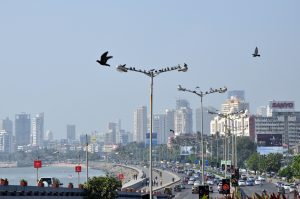In India, besides daily wage laborers, the people from the middle class and even the upper middle class have been experiencing unemployment. This is because unemployment in Indian cities has progressively increased since the start of the pandemic.
According to the Centre for Monitoring Indian Economy, an independent think tank, the urban unemployment rate was above 9 percent last December, a figure that is alarming for a country where the cities host most of the better-paying jobs.
There’s more to India’s unemployment crisis, which has spread like a cancer in almost all the industries. Take the automobile industry for example. This industry ran successfully in Indian cities prior to the pandemic, creating many jobs.
However, sales in the automobile industry remain low since the start of the pandemic. The automobile stores that sell vehicles or auto parts have been shutting down, one by one. Consequently, people who work in this industry have been losing their jobs, contributing to the increasing rate of urban unemployment in particular and overall unemployment of the country in general.
India’s micro, small, and medium enterprises contribute half of the country’s exports. These enterprises contribute 30 percent of nominal GDP; they represent 95 percent of industrial units. Unfortunately, the pandemic has devastated these businesses, sending shockwaves to all sections of Indian economy.
Last December, Narayan Tatya Rane, India’s minister of micro, small and medium enterprises, revealed an online survey which suggested that 9 percent of these enterprises had to shut down because of the pandemic. Another survey conducted earlier in May 2021 among 6,000 of these enterprises as well as startups found that 59 percent of them planned to shut down, scale down, or sell their businesses by the end of 2021.
Micro, small, and medium enterprises employ 110 million people, making them one of the largest contributors to the Indian labor market. As these enterprises are shutting or scaling down their businesses, unemployment among laborers is exponentially increasing. Consequently, an increasing number of laborers, who usually live hand-to-mouth, have been unable to find work. Many are forced into wandering the streets, looking for food and shelter.
It is unlikely that India would be able to reduce unemployment rates anytime soon because of the shutting or scaling down of the micro, small and medium enterprises, which employ millions of people across the country. That has led to the increasing unemployment rate in the cities, which host almost all the better-paying jobs in the country.

































